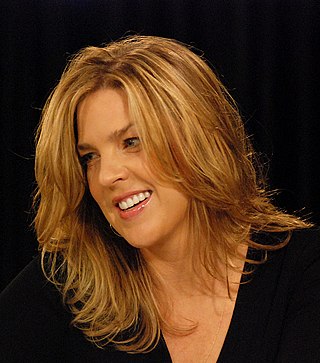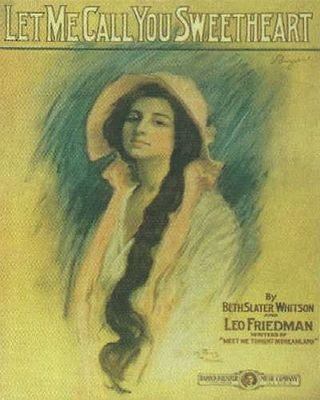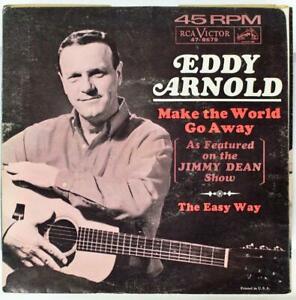Related Research Articles

Diana Jean Krall is a Canadian jazz pianist and singer known for her contralto vocals. She has sold more than 15 million albums worldwide, including over six million in the US. On December 11, 2009, Billboard magazine named her the second greatest jazz artist of the decade (2000–2009), establishing her as one of the best-selling artists of her time.

Rosemary Victoria Yuro, known professionally as Timi Yuro, was an American singer. Sometimes called "the little girl with the big voice", she is considered to be one of the first blue-eyed soul stylists of the rock era. Yuro possessed a contralto vocal range. According to one critic, "her deep, strident, almost masculine voice, staggered delivery and the occasional sob created a compelling musical presence".
"I Believe" is a popular song written by Ervin Drake, Irvin Abraham, Jack Mendelsohn and Al Stillman in 1953. The most popular version was recorded by Italian-American singer Frankie Laine, and spent eighteen weeks at No. 1 on the UK Singles Chart.
"Just Say I Love Her" is a popular song, adapted from the Neapolitan song "Dicitencello vuje". The original music was written by Neapolitan composer Rodolfo Falvo in 1930; and was arranged in the United States by Jack Val and Jimmy Dale; the original Neapolitan lyrics by Enzo Fusco, and English lyrics by Martin Kalmanoff and Sam Ward.
"If (They Made Me a King)" is a popular song with music written by Tolchard Evans and the lyrics written by Robert Hargreaves and Stanley J. Damerell. The song was written in 1934, but the most popular versions were recorded in 1950–1951. Perry Como's version, recorded November 28, 1950, was a number-one hit on the Billboard charts for eight weeks. The Como version was released under the following labels and catalog numbers:
"And That Reminds Me", also known as "My Heart Reminds Me", is a popular song.
"Too Marvelous for Words" is a popular song written in 1937. Johnny Mercer wrote the lyrics for music composed by Richard Whiting. It was introduced by Wini Shaw and Ross Alexander in the 1937 Warner Brothers film Ready, Willing, and Able, as well as used for a production number in a musical revue on Broadway. The song has become a pop and jazz standard and has been recorded by many artists.

"I'll See You in My Dreams" is a popular song and jazz standard, composed by Isham Jones, with lyrics by Gus Kahn, and published in 1924. It was recorded on December 4 that year, by Isham Jones conducting Ray Miller's Orchestra. Released on Brunswick Records, it charted for 16 weeks during 1925, spending seven weeks at number 1 in the United States. Other popular versions in 1925 were by Marion Harris; Paul Whiteman; Ford & Glenn; and Lewis James; with three of these four reaching the Top 10.

"Let Me Call You Sweetheart" is a popular song, with music by Leo Friedman and lyrics by Beth Slater Whitson. The song was published in 1910 and was a huge hit for the Peerless Quartet in 1911. A recording by Arthur Clough was very popular the same year too. A 1924 recording identifies a Spanish title, "Déjame llamarte mía".
"I've Got The World on a String" is a 1932 popular jazz song composed by Harold Arlen, with lyrics written by Ted Koehler. It was written for the twenty-first edition of the Cotton Club series which opened on October 23, 1932, the first of the Cotton Club Parades.

"Make the World Go Away'" is a country pop song composed by Hank Cochran. It has become a Top 40 popular success three times: for Timi Yuro (1963), Eddy Arnold (1965), and the brother-sister duo Donny and Marie Osmond (1975). The original version of the song was recorded by Ray Price in 1963. and popularized again by Mickey Gilley in (1999) has remained a country-crooner standard ever since.
"Little Girl Blue" is a popular song with music by Richard Rodgers and lyrics by Lorenz Hart, published in 1935. The song was introduced by Gloria Grafton in the Broadway musical Jumbo.
"I Wished on the Moon" is a song composed by Ralph Rainger, with lyrics by Dorothy Parker. Bing Crosby sang the song in The Big Broadcast of 1936.
"I've Got a Crush on You" is a song composed by George Gershwin, with lyrics by Ira Gershwin. It is unique among Gershwin compositions in that it was used for two different Broadway productions: Treasure Girl (1928), when it was introduced by Clifton Webb and Mary Hay, and Strike Up the Band (1930), when it was sung by Doris Carson and Gordon Smith. It was later included in the tribute musical Nice Work If You Can Get It (2012), in which it was sung by Jennifer Laura Thompson. When covered by Frank Sinatra he was a part of Columbia Records.
"Isn't This a Lovely Day?" is a popular song written by Irving Berlin for the 1935 film Top Hat, where it was introduced by Fred Astaire in the scene where his and Ginger Rogers' characters are caught in a gazebo during a rainstorm. The lyric is an example of a song which turns a bad situation into a love song, a common style for Irving Berlin, as in "I've Got My Love to Keep Me Warm" and "Let's Have Another Cup of Coffee".
"The Best Thing for You (Would Be Me)" is a popular song written by Irving Berlin and published in 1950. It was featured in the 1950 Broadway musical play, Call Me Madam, in which it was introduced by Ethel Merman in a scene with Paul Lukas. The 1953 film version also featured the song when it was sung by Ethel Merman and George Sanders.
"It Never Entered My Mind" is a show tune from the 1940 Rodgers and Hart musical Higher and Higher, where it was introduced by Shirley Ross.
"I Apologize" is a popular song written by Al Hoffman, Al Goodhart, and Ed Nelson.
"Just Squeeze Me " is a 1941 popular song composed by Duke Ellington, with lyrics by Lee Gaines. The song has been recorded numerous times by a number of artists in the years since, having become a jazz standard. Hit recordings have been by Paul Weston & His Orchestra and by The Four Aces.
"Let There Be Love" is a popular song with music by Lionel Rand and lyrics by Ian Grant, published in 1940.
References
- ↑ Whitburn, Joel (1973). Top Pop Records 1940-1955. Record Research.
- ↑ Henson, Brian (1989). First hits, 1946-1959. Colin Morgan. London: Boxtree. ISBN 1-85283-268-1. OCLC 19389211.
- ↑ "allmusic.com". allmusic.com. Retrieved March 23, 2020.
- ↑ "www.allmusic.com". allmusic.com. Retrieved September 13, 2024.
- ↑ "www.allmusic.com". allmusic.com. Retrieved September 14, 2024.
- ↑ "Discogs.com". Discogs.com. Retrieved March 23, 2020.
- ↑ "www.discogs.com". www.discogs.com. Retrieved September 15, 2024.
- ↑ "Discogs.com". Discogs.com. Retrieved March 23, 2020.
- ↑ "www.discogs.com". www.discogs.com. Retrieved September 16, 2024.
- ↑ "www.allmusic.com". allmusic.com. Retrieved September 16, 2024.
- ↑ "Discogs.com". Discogs.com. Retrieved March 23, 2020.
- ↑ "www.discogs.com". www.discogs.com. Retrieved September 15, 2024.
- ↑ "www.allmusic.com". www.allmusic.com. Retrieved September 14, 2024.
- ↑ "www.allmusic.com". allmusic.com. Retrieved September 15, 2024.
- ↑ "www.allmusic.com". www.allmusic.com. Retrieved September 13, 2024.